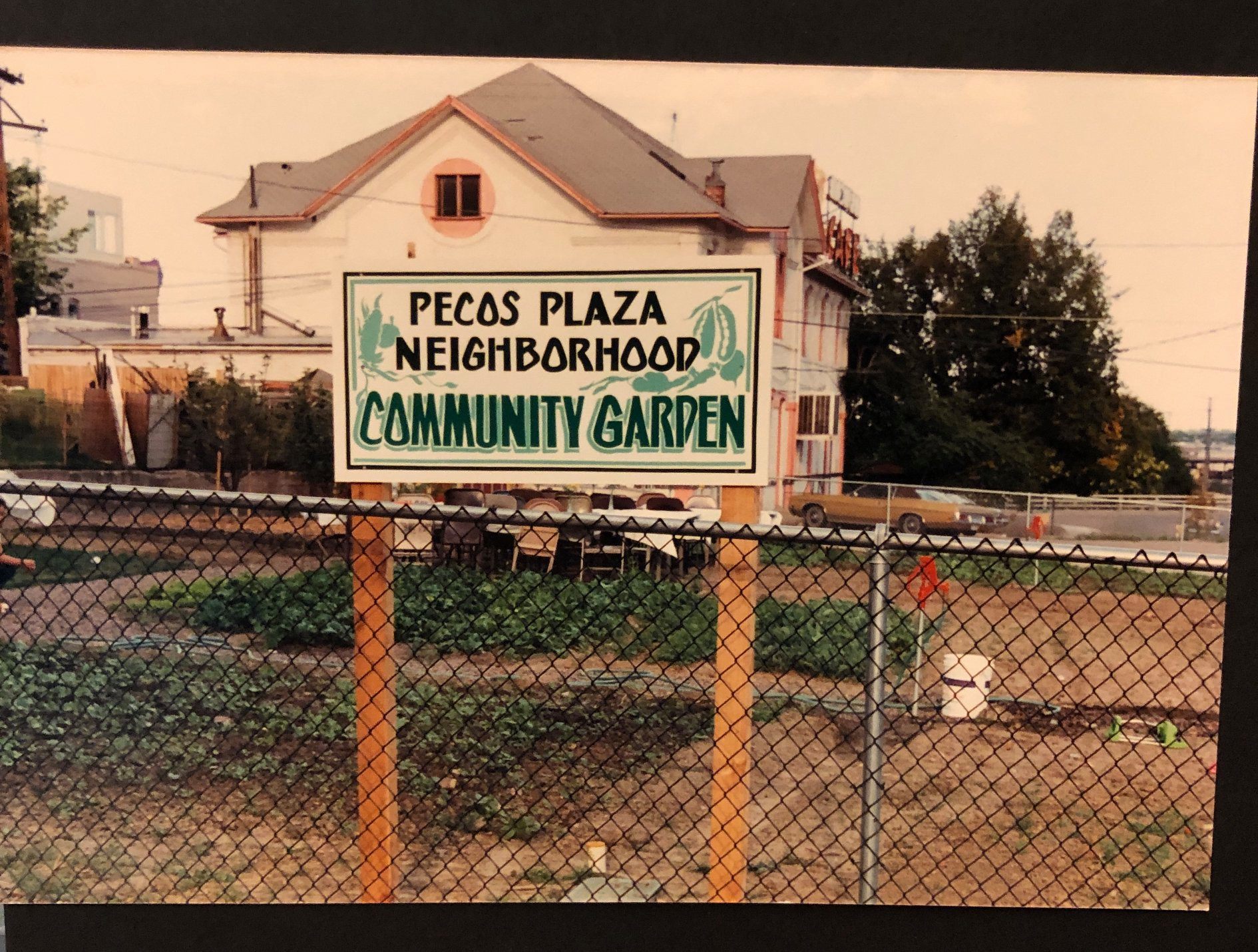We believe that together, we can grow a sustainable urban future where people across metro Denver are connected to the earth, each other, and the food they eat.
Working in hand with community, DUG is planting the seeds for a thriving metro Denver as we:
Create healthy, hyperlocal food systems through our network of community gardens and food forests, providing people with access, skills, and resources to grow their own organic food for themselves and their neighbors
Steward a climate-resilient city by regenerating depleted urban soils, supporting pollinators, sequestering carbon, and educating metro Denverites of all ages on organic gardening, composting, pest + disease management, tree care, and more.
Build strong, interdependent communities where neighbors find (and steward) common ground in our shared spaces

Our 2022 Impact Report is Now Live. Check It Out Here!
DUG By The Numbers:
34
627,926
200
4,533
62,500

Who is DUG?
Denver Urban Gardens, or DUG as most people call us, started as a grassroots movement in the late 1970s, when gardeners in Denver’s Northside neighborhood came together to create a space for a group of local Hmong women to grow their own food. Working collaboratively, they transformed a vacant parking lot into what is now the Pecos Community Garden. Over the following years, more community gardens began to spring up as the group helped other neighbors do the same.
DUG was formally incorporated as a 501(c)(3) non-profit organization in 1985. Since that time, we’ve seen the impact of community gardens grow alongside the DUG Network across metro Denver.
Learn more about DUG and our programs.
Meet the DUG Community
We love to shout it from the rooftops–the DUG community is pretty special!
Whether they grow to feed their families or neighbors, tend DUG food forests, keep a couple of tomato plants on their patio for summer salads, teach others how to compost, save seeds and cultivate plants from their home countries, or like meeting neighbors by volunteering in the garden, the DUG community cultivates common ground through our love of people, plants, and planet.
Explore their stories in our Faces of DUG series.
In the short film A Garden in Every Neighborhood, community gardeners, researchers, and public health professionals tell their stories about the positive impacts that community gardens have had on their lives and in their communities.
Gardening is Seriously Good for You (And we’ve got the data to prove it)
DUG partnered in a 3-year (2018-2020) randomized trial, called the CAPS study, which explored the physical and mental health benefits of community gardening. It was funded by American Cancer Society and conducted by researchers from University of Colorado Boulder, Colorado State University, University of North Carolina at Chapel Hill, Michigan State University, University of Colorado Anschutz Medical Campus, University of South Carolina, and Urban Institute.
The study, which operated exclusively in DUG gardens, found that people who started gardening ate more fiber and got more physical activity—two known ways to reduce risk of cancer and chronic diseases. They also saw their levels of stress and anxiety significantly decrease.
Read More about the Benefits of Gardening
Change Committee
Make meaningful change within the dug community.
The Change Committee was formed in 2021 to be an inclusive and meaningful way for people with marginalized identities to voice in their own words what they want and need from DUG. This 10-15 person committee meets monthly to collectively form action plans to address organizational challenges; a 1-3 hour monthly commitment.
Topics We’ve Addressed:
- Accessibility in the Gardens
- Land Rights & Acknowledgement
- Engaging Youth
- Cultural Diversity & Representation
- Houselessness Awareness



